Resources
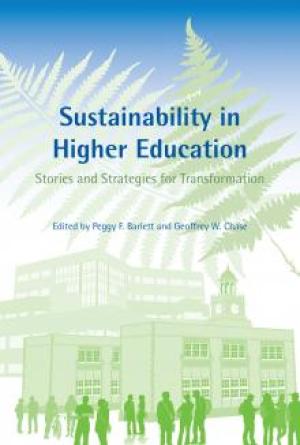
Click Here for Book Review Abstract: In colleges and universities across the United States, students, faculty, and staff are forging new paths to sustainability. From private liberal arts colleges to major research institutions to community colleges, sustainability concerns are being integrated into curricula, policies, and programs. New divisions, degree programs, and courses of study cross traditional disciplinary boundaries; Sustainability Councils become part of campus governance; and new sustainability issues link to historic social and educational missions. In this book, leaders from twenty-four colleges and universities offer their stories of institutional and personal transformation. These stories document both the power of leadership—whether by college presidents, faculty, staff, or student activists—and the potential for institutions to redefine themselves. Chapters recount, among other things, how inclusive campus governance helped mobilize students at the University of South Carolina; how a course at the Menominee Nation’s tribal college linked sustainability and traditional knowledge; how the president of Furman University convinced a conservative campus community to make sustainability a strategic priority; how students at San Diego State University built sustainability into future governance while financing a LEED platinum-certified student center; and how sustainability transformed pedagogy in a lecture class at Penn State. As this book makes clear, there are many paths to sustainability in higher education. These stories offer a snapshot of what has been accomplished and a roadmap to what is possible. (From the Publisher)
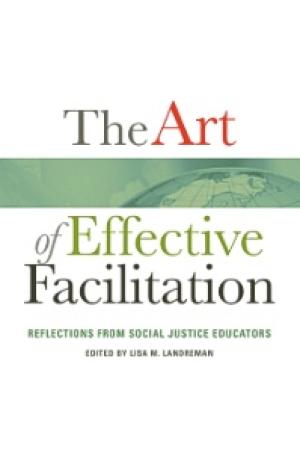
Click Here for Book Review Abstract: How can I apply learning and social justice theory to become a better facilitator? Should I prepare differently for workshops around specific identities? How do I effectively respond when things aren’t going as planned? This book is intended for the increasing number of faculty and student affairs administrators – at whatever their level of experience -- who are being are asked to become social justice educators to prepare students to live successfully within, and contribute to, an equitable multicultural society. It will enable facilitators to create programs that go beyond superficial discussion of the issues to fundamentally address the structural and cultural causes of inequity, and provide students with the knowledge and skills to work for a more just society. Beyond theory, design, techniques and advice on practice, the book concludes with a section on supporting student social action. The authors illuminate the art and complexity of facilitation, describe multiple approaches, and discuss the necessary and ongoing reflection process. What sets this book apart is how the authors illustrate these practices through personal narratives of challenges encountered, and by admitting to their struggles and mistakes. They emphasize the need to prepare by taking into account such considerations as the developmental readiness of the participants, and the particular issues and historical context of the campus, before designing and facilitating a social justice training or selecting specific exercises. They pay particular attention to the struggle to teach the goals of social justice education in a language that can be embraced by the general public, and to connect its structural and contextual analyses to real issues inside and outside the classroom. The book is informed by the recognition that “the magic is almost never in the exercise or the handout but, instead, is in the facilitation”; and by the authors’ commitment to help educators identify and analyze dehumanizing processes on their campuses and in society at large, reflect on their own socialization, and engage in proactive strategies to dismantle oppression. (From the Publisher)
AASHE is helping to create a brighter future of opportunity for all by advancing sustainability in higher education. By creating a diverse community engaged in sharing ideas and promising practices, AASHE provides administrators, faculty, staff and students, as well as the business that serve them, with: thought leadership and essential knowledge resources; outstanding opportunities for professional development; and a unique framework for demonstrating the value and competitive edge created by sustainability initiatives.
A kinetic group classroom exercise consisting of a series of questions that move participants forward and backward on a scale, to make visible comparative levels of privilege in our lives and histories.
Links to a self-assessment tool, and articles about hidden stereotypes and biases. Part of the larger Tolerance.org website, aimed more at K-12 instructors.
An index of more than 25,000 peace and conflict resolution related Web pages, books, articles, audio-visual materials, organizational profiles, events, and current news articles – including links for syllabi, simulations and case studies for use in higher education settings.
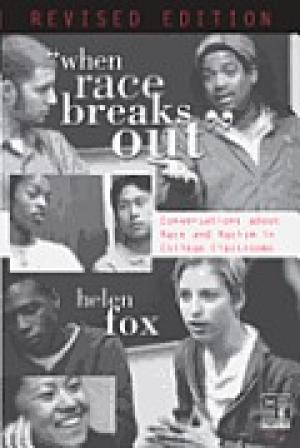
When Race Breaks Out is a guide for instructors who want to promote more honest and informed conversations about race and racism. Based on the author's personal practice and interviews with students and faculty from a variety of disciplines, this book combines personal memoirs, advice, teaching ideas, and lively stories from college classrooms. A unique ¬´ insider's guide to the main ideas, definitions, and opinions about race helps instructors answer students' questions and anticipate their reactions, both to the material and to each other. An annotated bibliography of over 150 articles, books, and videos with recommendations for classroom use is also included. (From the Publisher)
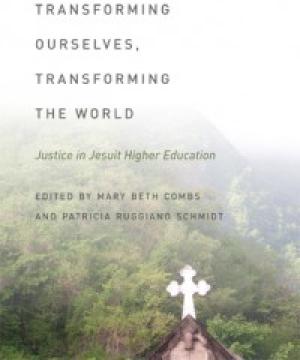
Click Here for Book Review Abstract: Transforming Ourselves, Transforming the World is an insightful collection that articulates how Jesuit colleges and universities create an educational community energized to transform the lives of its students, faculty, and administrators and to equip them to transform a broken world. The essays are rooted in Pedro Arrupe’s ideal of forming men and women for others and inspired by Peter-Hans Kolvenbach’s October 2000 address at Santa Clara in which he identified three areas where the promotion of justice may be manifested in our institutions: formation and learning, research and teaching, and our way of proceeding. Using the three areas laid out in Fr. Kolvenbach’s address as its organizing structure, this stimulating volume addresses the following challenges: How do we promote student life experiences and service? How does interdisciplinary collaborative research promote teaching and reflection? How do our institutions exemplify justice in their daily practices? Introductory pieces by internationally acclaimed authors such as Rev. Dean Brackley, S.J.; David J. O’Brien; Lisa Sowle Cahill; and Rev. Stephen A. Privett, S.J., pave the way for a range of smart and highly creative essays that illustrate and honor the scholarship, teaching, and service that have developed out of a commitment to the ideals of Jesuit higher education. The topics covered span disciplines and fields from the arts to engineering, from nursing to political science and law. The essays offer numerous examples of engaged pedagogy, which as Rev. Brackley points out fits squarely with Jesuit pedagogy: insertion programs, community-based learning, study abroad, internships, clinical placements, and other forms of interacting with the poor and with cultures other than our own. This book not only illustrates the dynamic growth of Jesuit education but critically identifies key challenges for educators, such as: How can we better address issues of race in our teaching and learning? Are we educating in nonviolence? How can we make the college or university “greener”? How can we evoke a desire for the faith that does justice? Transforming Ourselves, Transforming the World is an indispensable volume that has the potential to act as an academic facilitator for the promotion of justice within not only Jesuit schools but all schools of higher education. (From the Publisher)
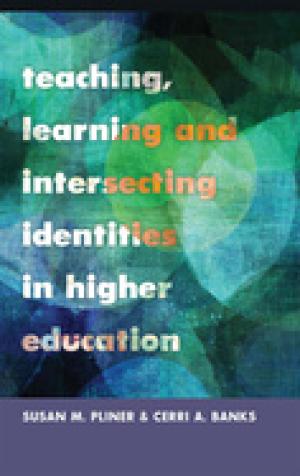
This book utilizes the theory of intersectionality to focus on the divergent identities and experiences of marginalized groups and to analyze the ways these experiences infiltrate the classroom. It examines teaching and learning as integrated and synergistic practices and highlights the personal and institutional power dynamics existing between scholars and students. Starting with the premise that institutions of higher education must pay attention to the ways intersecting identities and structures of privilege and disadvantage enter all educational settings, the contributors to this text represent a range of academic disciplines and they are both scholars and students. This approach demonstrates that ideas related to teaching and learning should not follow models that separate teachers, students, and disciplines, but rather that significant learning occurs in the areas where they overlap. Each chapter provides pedagogical strategies and methods for classroom practice that facilitate student learning, equitable classroom environments, and a social justice agenda. (From the Publisher)
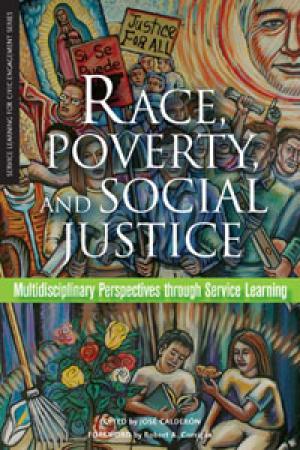
This volume explores multiple examples of how to connect classrooms to communities through service learning and participatory research to teach issues of social justice. The various chapters provide examples of how collaborations between students, faculty, and community partners are creating models of democratic spaces (on campus and off campus) where the students are teachers and the teachers are students. The purpose of this volume is to provide examples of how service learning can be integrated into courses addressing social justice issues. At the same time, it is about demonstrating the power of service learning in advancing a course content that is community-based and socially engaged. To stimulate the adaptation of the approaches described in these books, each volume includes an Activity / Methodology table that summarizes key elements of each example, such as class size, pedagogy, and other disciplinary applications. Click here for the table to this title. (From the Publisher)